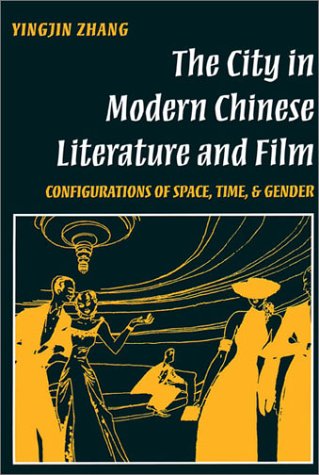This study explores the ways in which the city and urban life have been represented in modern Chinese literature and film. The author has three aims: to trace the literary and filmic configurations (i.e., symbolic constructions) of the city in modern China; to investigate the ways the city is placed in an ambivalent if not negative light in these configurations; and to work toward an understanding of how one can study the nature of the city/country problematic in modern Chinese literary history. Instead of constructing a linear temporal progression of the treatment of the city in literature and film, the author isolates three typical configurations the city in space (rural vs. urban), the city in time (traditional vs. modern), and the city in relation to gender (male cities devoted to intellectual pursuits and self-cultivation vs. female cities devoted to pleasure and novelty).
He shows how modern Chinese literature and film have contrasted these configurations in the representations of two cities: Beijing, a traditional city dominated by rural values, personal relationships, leisure, and a disdain for Western values; and Shanghai, a modern city dominated by money and exchange values, frantic activity, fallen women and a fallen civilization, and the pursuit of pleasure, variety, and Western lifestyles.
- ISBN10 0804726825
- ISBN13 9780804726825
- Publish Date 30 September 1996
- Publish Status Active
- Out of Print 24 November 2006
- Publish Country US
- Imprint Stanford University Press
- Format Hardcover
- Pages 412
- Language English
